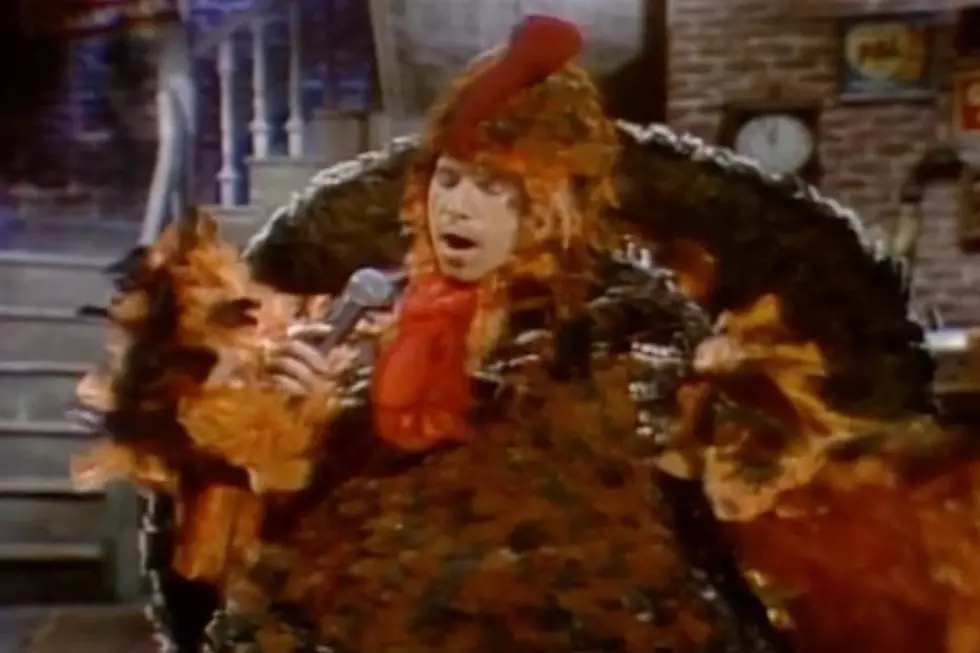Hugh Masekela, Jazz Trumpeter Who Worked With the Byrds and Paul Simon, Dies
Hugh Masekela, the South African-born jazz trumpeter and activist who topped the charts in 1968 with the instrumental "Grazing in the Grass" and later worked with Paul Simon, has died from prostate cancer at the age of 78. He passed away in his sleep at his home in Johannesburg.
"A loving father, brother, grandfather and friend, our hearts beat with profound loss," his family said in a statement reprinted at CNN. "Hugh's global and activist contribution to and participation in the areas of music, theater and the arts in general is contained in the minds and memory of millions across six continents and we are blessed and grateful to be part of a life and ever-expanding legacy of love, sharing and vanguard creativity that spans the time and space of six decades. Rest in power beloved, you are forever in our hearts."
"A baobab tree has fallen, the nation has lost a one of a kind musician with the passing of Jazz legend bra Hugh Masekela," tweeted the South African Culture Minister Nathi Mthethwa. "We can safely say bra Hugh was one of the great architects of Afro-Jazz and he uplifted the soul of our nation through his timeless music."
Masekela was born April 4, 1939, in Witbank, South Africa. As NPR reports, he was given a trumpet at the age of 14 by anti-apartheid activist Father Trevor Huddleston, who was trying to change the youngster's delinquent behavior. Masekela had fallen in love with the instrument through the Kirk Douglas movie Young Man With a Horn.
By the late '50s, he played with Abdullah Ibrahim in the Jazz Epistles, who helped popularize bebop in South Africa. But when the government cracked down on public gatherings by black people in 1960 following a protest, they were forced underground, and Masekela left for London. He then moved to New York, where Harry Belafonte and singer Miriam Makeba, another South African exile whom he would later marry, helped him get a scholarship to the Manhattan School of Music.
His recording career began in 1962 with the release of Trumpet Africaine where, on the advice of the American musicians he met, he began incorporating South African sounds into jazz. "[They] said, `Listen, if you're going to play jazz, you're just going to be a statistic like all of us. Why don't you infuse some of the stuff from your home into your music, and then maybe you'll come up with something that will interest everybody and that we can learn from.' And I guess I came up with some kind of a hybrid," he told NPR.
Listen to the Byrds' 'So You Want to Be a Rock 'n' Roll Star' Featuring Hugh Masekela
He reached a wider audience five years later when he played on the Byrds' singles "So You Want to Be a Rock 'n' Roll Star" and "Lady Friend." That led to an appearance at the Monterey Pop Festival, where he performed on its second day, in between Moby Grape and the Byrds, with whom he played "So You Want to Be a Rock 'n' Roll Star." Masakela was later name-checked on "Monterey," Eric Burdon & the Animals' single that recapped the festival. Masekela's momentum continued through to the next year, when "Grazing in the Grass" hit No. 1 in the summer of 1968.
Masekela devoted much of the '70s and '80s to trying to end apartheid, often working with other African musicians, on songs like "Soweto Blues" and “Mandela (Bring Him Back Home)." He and Makeba accompanied Simon on the Graceland tour, where they and Ladysmith Black Mombazo were incorporated into Simon's set rather than serving as opening acts. Although they weren't allowed to play in South Africa, the tour got as close as Harare, Zimbabwe -- a show that was released as Paul Simon, Graceland: The African Concert. Masekela later played on "Further to Fly" from Simon's Graceland follow-up,The Rhythm of the Saints.
Yet, for all the oppression in South Africa, Masekela remained committed to his homeland. He returned following the release of Nelson Mandela and the subsequent dismantling of apartheid.
"As a product of the meticulously designed apartheid regime of 20th century South Africa, my father's life was the definition of activism and resistance," Selema Mabena Masekela said in a letter. "Despite the open arms of many countries, for 30 years he refused to take citizenship anywhere else on this earth. His belief, too strong, that the pure evil of a systematic racist oppression could and would be crushed. Instead he would continue to fight. He was right."
Listen to Hugh Masekela's 'Grazing in the Grass'
Remembering Rockers We Lost in 2017
More From Ultimate Classic Rock









